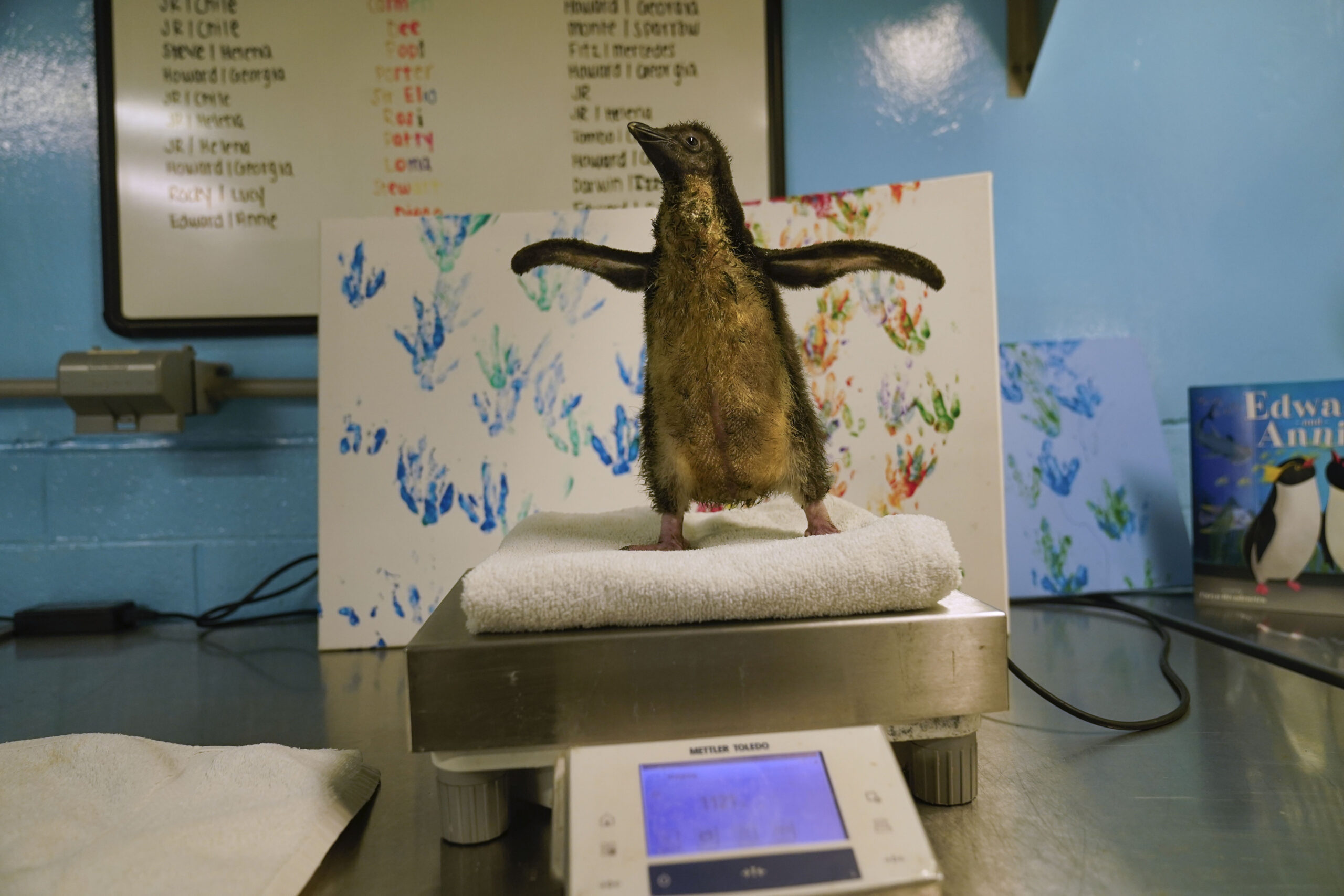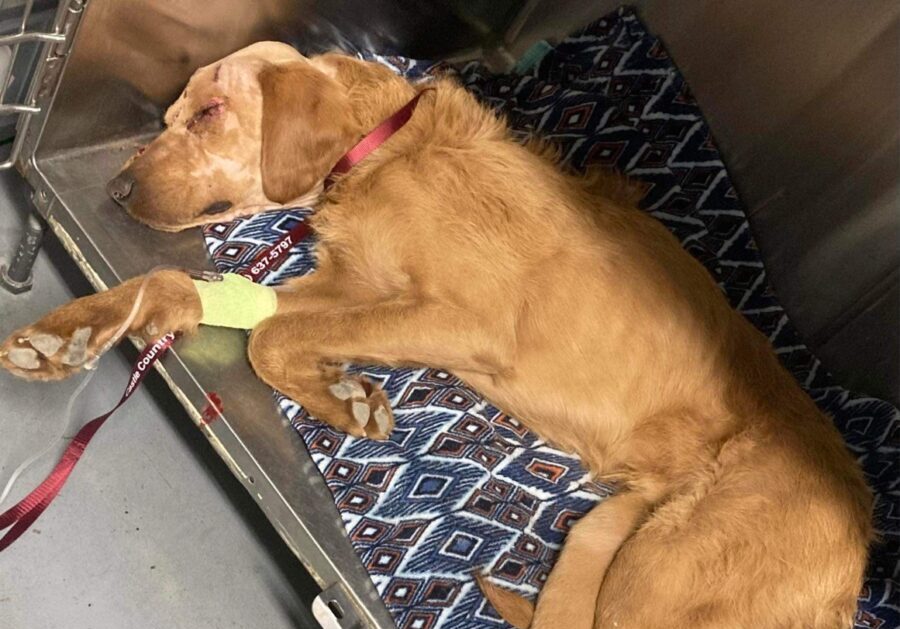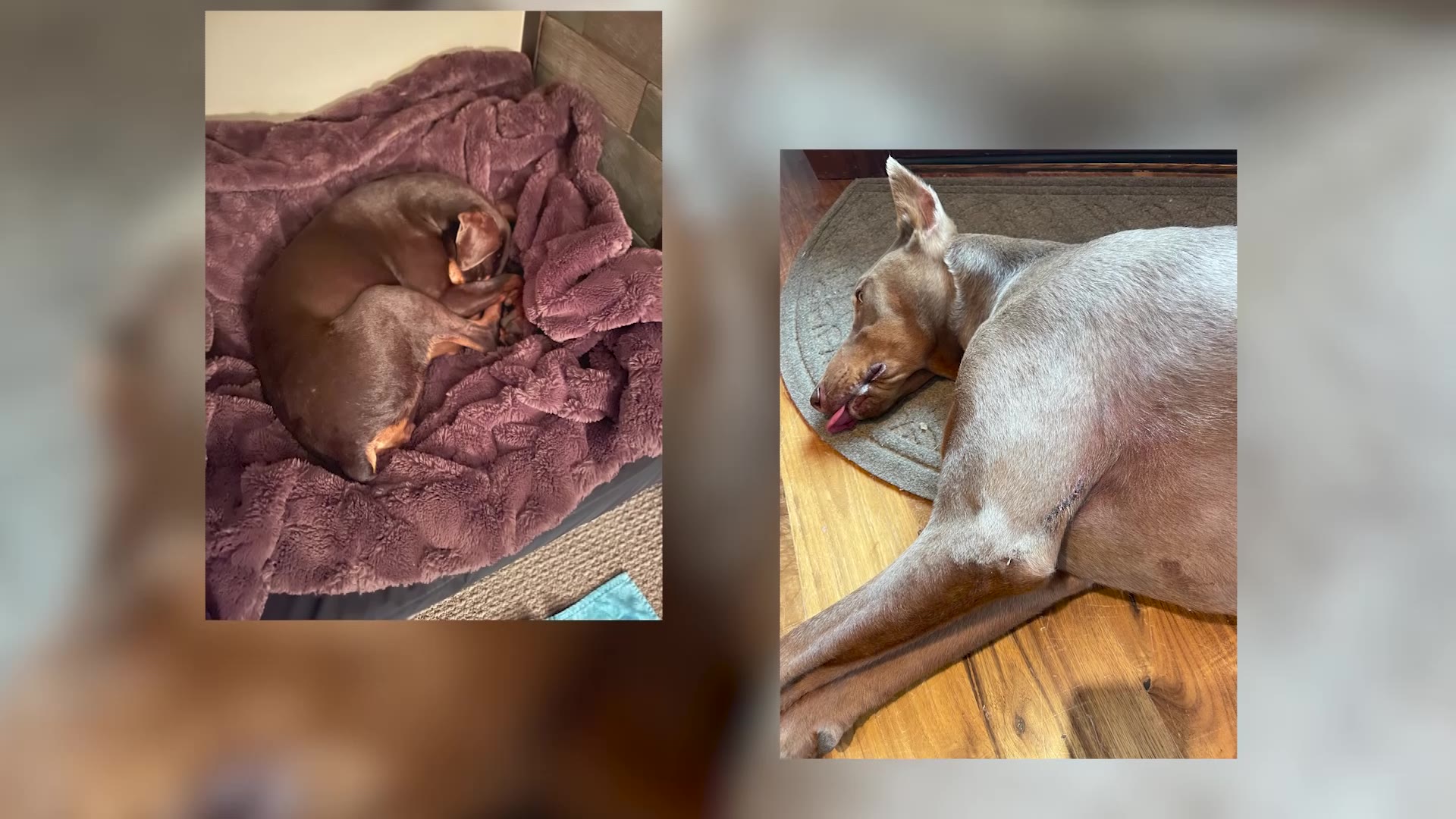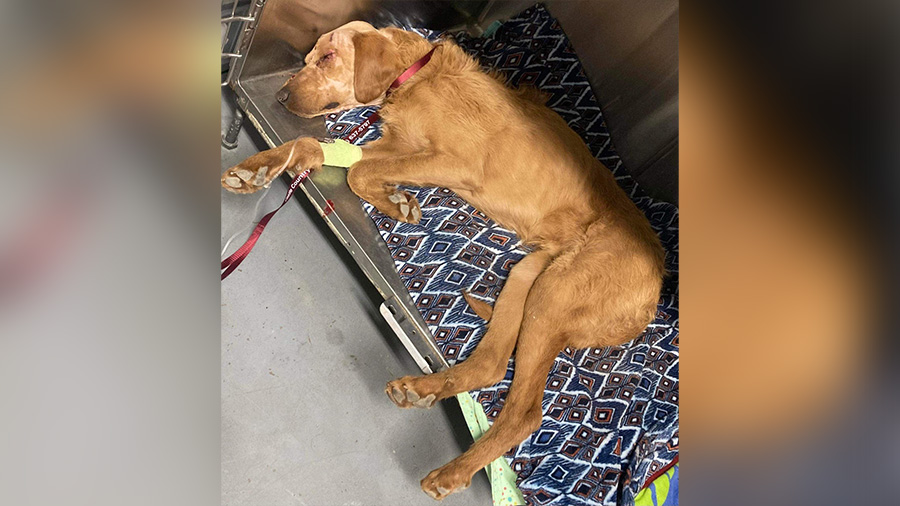Chicago’s Shedd Aquarium welcomes its first rockhopper penguin chick in 8 years
Jul 13, 2023, 2:06 PM

The newest member of Shedd Aquarium's penguin population, a southern rockhopper chick who hatched on June 16, is weighed during a daily wellness exam, Thursday, July 13, 2023, in Chicago. The chick's parents, Edward and Annie, became famous in 2020 as part of the aquarium's "field trips," where penguins would visit locations such as the nearby Field Museum and Soldier Field while the aquarium was closed during the pandemic. (AP Photo/Erin Hooley)
(AP Photo/Erin Hooley)
CHICAGO (AP) — It’s bright and early at Chicago’s Shedd Aquarium and the penguin population’s newest member is ready for a wellness check.
A fuzzy brown southern rockhopper chick is gently plopped onto a scale in an exam room and Shedd’s penguin team members are happy with the results. So, it seems, is the chick, who waves its flippers in the air and stretches out its neck.
“You’re doing the happy flaps!” says senior trainer Katy Roxbury, who offers the chick bits of herring.
The first southern rockhopper penguin hatched at Shedd in eight years came out of its shell on June 16. The aquarium made modifications to the exhibit area and brought in a few new female penguins last year as part of the rockhopper breeding program. Shedd’s penguin colony also includes Magellanic penguins.
“We were very excited when we found out that this egg was fertile,” says penguin and otter supervisor Megan Vens-Policky. “We’ve been monitoring it closely. We’re seeing great growth and we’re seeing very attentive behavior from the parents, so we couldn’t be happier with how things are going.”
The chick’s parents, Edward and Annie, became famous in 2020 when they joined the aquarium’s “field trips,” visiting locations such as the nearby Field Museum and Soldier Field while the aquarium was closed due to the COVID-19 pandemic.
During the daily wellness exam, the chick is weighed to see how much food it’s getting from mom and dad. Aquarium team members also offer additional food items, which helps the chick become comfortable with being handled.
The chick will remain nameless for three months while the penguin team focuses on its health and development. The sex of the chick will be determined by testing DNA from inside its egg shell.
Shedd is part of the Species Survival Plan, a global conservation program designed to optimize the genetics and health of the rockhopper population within accredited zoos and aquariums.
“The southern rockhopper population is a population of concern out in the wild so it’s one we definitely want to learn more about,” says Vens-Policky.













